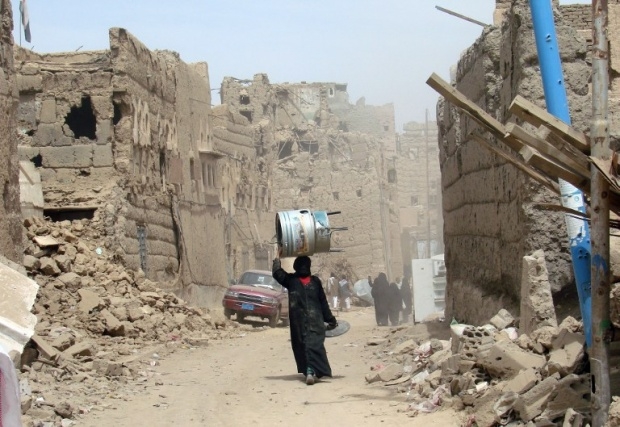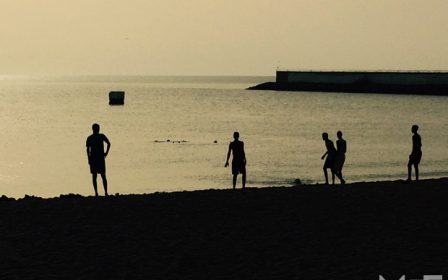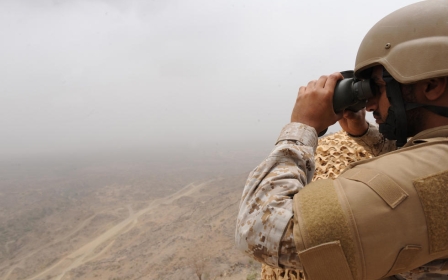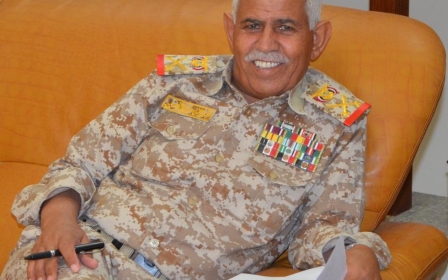Yemeni man lost 27 family members in Saudi-led air strike
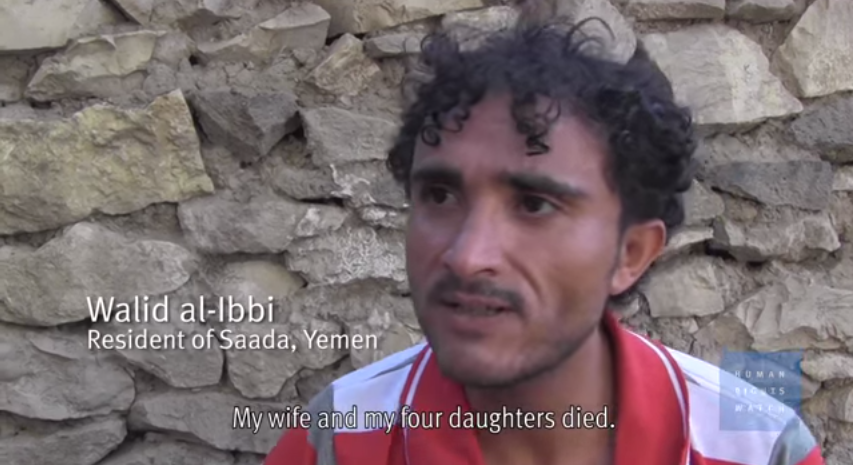
For Walid al-Ibbi, it should have been a time for rejoicing. That night someone had come to ask for his daughter's hand in marriage, but not long afterwards she was killed, along with three of her sisters and al-Ibbi's wife, in a Saudi airstrike.
Al-Ibbi's account is given in a video published on Tuesday by Human Rights Watch (HRW) that investigates the civilian suffering inflicted by Saudi Arabia’s bombing campaign in Yemen.
The rights group interviewed al-Ibbi, who lost 27 members of family, including 17 children, when the Saudi-led coalition bombed his home in the Houthi stronghold city of Saada in north Yemen.
"On that night someone came to ask for my daughter's hand in marriage," a visibly distraught al-Ibbi tells the HRW researcher. "I didn't even have to time to be happy for my daughter before the strike happened."
The HRW video forms part of a new 47-page report by Human Rights Watch that condemns the “unlawful” killing of civilians in Yemen.
“The coalition’s aerial bombing of Saada killed dozens of civilians, devastating entire families,” Sarah Leah Whitson, Middle East and North Africa director at Human Rights Watch, said in a statement.
“These attacks appear to be serious laws-of-war violations that need to be properly investigated.”
Aimed at defanging the powerful Houthi movement which last year swept down from the mountains of Saada and seized much of Yemen, the Saudi-led coalition has launched daily air raids since late March on military sites that have been overrun by the Houthis, alongside forces loyal to ex-president Ali Abdullah Saleh.
Observers have focused on the fight for the capital Sanaa and a campaign to fend off Houthis besieging the southern port city of Aden. But Saada has received the bulk of the bombing, with fighter jets levelling military camps, bridges, armed vehicles and government-run banks.
"Their campaign is basically to starve the province, cut off fuel and food by bombing oil tankers and food trucks heading to Saada," Saada's deputy governor of told Middle East Eye in May.
Meanwhile, on Wednesday rebel fire broke out in a residential district of Yemen's second city Aden, killing more than 30 civilians, as the UN declared its highest level humanitarian emergency in the war-torn country.
The rocket fire began before dawn when the streets were busy ahead of the daytime fast observed by Muslims during the holy month of Ramadan.
A fresh salvo of rockets later in the morning hit mourners burying some of the dead from the earlier fire, the spokesman and witnesses said.
The city's health chief Al-Khader Laswar said at least 31 people were killed, including three women and two children, while more than 100 others were wounded.
Civilians were seen carrying bloodied bodies and calling for help as they piled them into vehicles and drove them to hospitals.
"All agencies agreed to declare the level three for a period of six months," said UN spokesman Farhan Haq.
More than 21.1 million people - over 80 percent of Yemen's population - are in need of aid, with 13 million facing food shortages.
Under the emergency plan, the United Nations will try to reach 11.7 million people most in need.
"The health system is facing imminent collapse with the closure of at least 160 health facilities due to insecurity, lack of fuel and supplies," Haq said.
New MEE newsletter: Jerusalem Dispatch
Sign up to get the latest insights and analysis on Israel-Palestine, alongside Turkey Unpacked and other MEE newsletters
Middle East Eye delivers independent and unrivalled coverage and analysis of the Middle East, North Africa and beyond. To learn more about republishing this content and the associated fees, please fill out this form. More about MEE can be found here.


